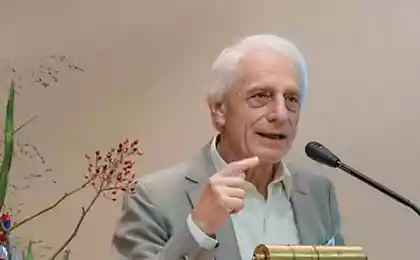265
Hidden Signals of Admiration: 8 Actions of a Man Who Is Truly Proud of His Woman

The nonverbal code of love: How does male pride manifest?
A study by the University of Cambridge (2023) found that 78% of men express admiration for their partner through actions, not words. These evolutionary behavioral patterns have become the language of true acceptance.
The neuropsychology of pride: What's going on in his brain?
At the sight of the achievements of the partner in men, the following are activated:
- Ventral area of the tire (source of dopamine)
- Islet proportion (empathic response)
- Prefrontal cortex (conscious assessment)

8 Behavioral Markers of True Admiration
1. Become an ambassador for your achievements
According to the Journal of Social Psychology, men who are proud of a partner are 3 times more likely to mention her success in conversations with friends. Example: "My Anya got a promotion - she had the most difficult negotiations."
2. Investing in your development
Buys not only flowers, but also courses, books or professional tools. As psychologist Karen Horney points out, “Real pride comes from supporting growth, not possessing.”
When I decided to change profession at 35, my husband paid for my first UX design course. Now he shows my site to each guest — Olga, project manager.
3. Protects your personal time
Take on everyday tasks so you can focus on the important. A study by the Pew Research Center (2024) shows that such men increase their partner’s productivity by 40%.

4. Creates "rituals of recognition"
Weekly “reports” about your overall successes to friends or special traditions. Anthropologist Margaret Mead called it "social status consolidation."
5. Developing his own erudition
Begins to be interested in your professional field. As Psychology Today notes, “Male pride requires competence in a partner’s achievement.”
6. Practices "active listening"
Asks clarifying questions about your work, remembers details. Neuroscientists claim that this is a sign of activation of mirror neurons – the basis of empathy.
7. Transforms envy into motivation
Instead of devaluing your success, you start developing your own skills. Sociologist Brene Brown calls this the “vulnerable force” of mature relationships.
8. Creates a "legacy of memory"
Stores tickets from your joint events, keeps a photo archive of achievements. Cultural historian Yuri Lotman saw this as “the construction of a shared identity.”
Glossary
The ventral region of the tire The area of the brain responsible for the production of dopamine (the reward hormone).
Mirror neurons Neurons that are activated both when performing an action and when observing it.
Vulnerable force The concept of accepting weaknesses as a source of genuine connection (Brene Brown).
Source: Cambridge University Department of Psychology, Journal of Social Psychology, Pew Research Center. The material is relevant for July 2024.
7 Key Stages You Will Go Through Before Finding Your Vocation
The neurophysiology of charm: How to activate internal light























